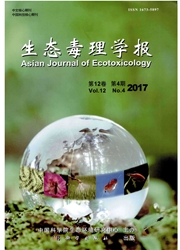

 中文摘要:
中文摘要:
宿主肠道内存在的大量微生物与其健康状况直接相关,这些微生物是人和动物健康成长不可或缺的。肠道微生物通过多种途径调节人体生理功能的同时也受到人体内外环境的影响。因此,分析建立肠道微生物、相关疾病的产生原因和作用机制以及环境影响因子之间的联系具有重要意义。本文首先针对肠道微生物对人体的物质与能量代谢、先天和获得性免疫、胃肠道功能等方面的影响进行综述。然后重点分析了近年来有关肠道微生物对环境污染所致健康效应的影响及作用机制的研究进展。以期加深肠道微生物与人类健康之间相互作用机理的理解,并为环境毒理学与肠道微生物之间关系的研究提供新的思路。
 英文摘要:
英文摘要:
A large number of microbes in guts are essential and directly related to their host health. A number of studies indicated that intestinal microbial communities regulate physiological functions of human body through a variety of pathways in relation to internal and external environments. Theoretically, it is of a great significance to establish linkages among intestinal microorganisms, functionary mechanisms of related diseases, and possible environmental impacts. This paper firstly reviewed interactions of human intestinal microorganism with material and energy metabolisms, innate and postnatal (or gifted and acquired) immunities, and gastrointestinal functions. Further, the paper emphasized proceedings of studies on relationships between intestinal microorganisms and health effects of environmental pollution and their possible mechanisms. With this review and analysis, we wish to acquire a better understanding of interactive mechanisms between intestinal microorganisms and human health, which might, provide new opinions for studying relationship between environmental toxicology and intestinal microbes.
 同期刊论文项目
同期刊论文项目
 同项目期刊论文
同项目期刊论文
 期刊信息
期刊信息
